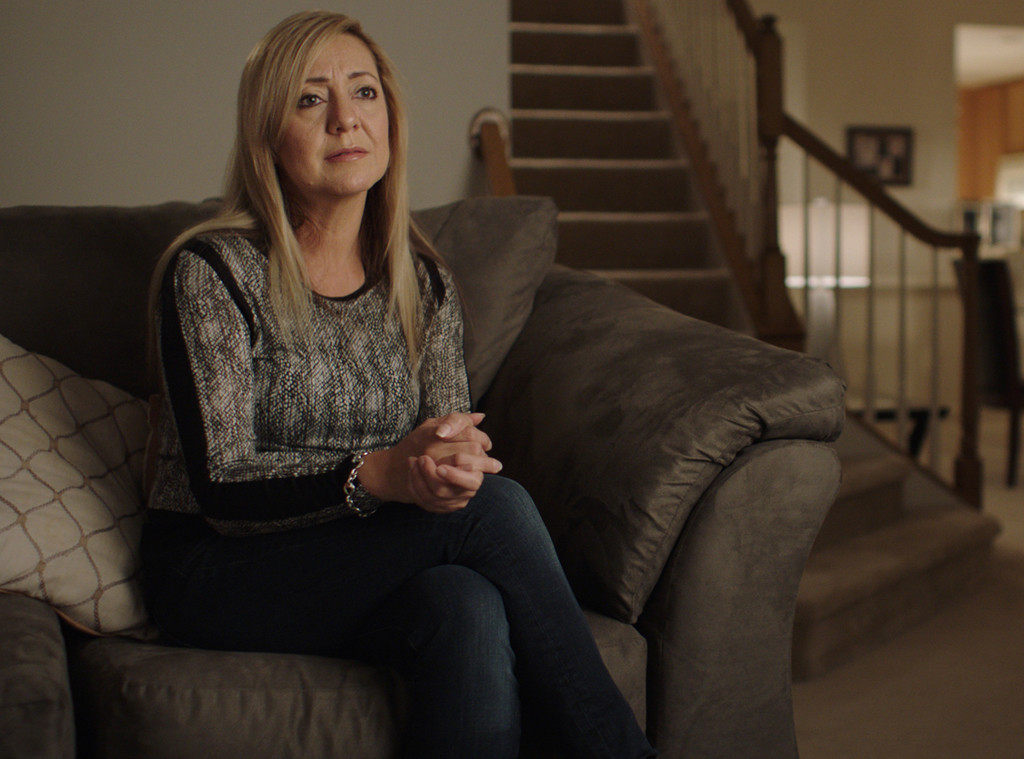
Courtesy of Sundance Institute
Boy meets girl. Boy marries girl. Girl cuts off boy’s penis. Girl throws penis out the window. Boy has penis reattached. Boy and girl become punchlines. The world moves on but continues to snicker from time to time.
On June 23, 1993, 24-year-old Lorena Bobbitt took a 12-inch kitchen knife and sliced off her 26-year-old husband John Wayne Bobbitt‘s penis while he was asleep in the bedroom of their apartment in Manassas, Va. Then she got in her car and drove off, throwing the detached member into a nearby field before driving to her boss Janna Bisutti’s house, where they called police.
Lorena told authorities and later testified in court that her husband of four years had come home that night, drunk, and proceeded to rape her. She further alleged that John had been sexually, physically and emotionally abusive for the duration of their marriage.
But first, people—the law, the media, the public—tried to process what had happened. It didn’t go great.
John and Lorena Bobbitt became household names, their story leading every newscast and covering all the tabloids. The puns ran wild in late-night talk show monologues and in a Saturday Night Live sketch featuring Mike Myers and Rosie O’Donnell. The New Yorker sent Gay Talese to cover the proceedings but ultimately didn’t print what he came up with, while Lorena actually posed in a bathing suit for Vanity Fair. Howard Stern, who said on the air he doubted whether John had raped his wife because “she’s not that great looking,” helped raise money—a reported $260,000—for John’s medical and legal expenses. A Howard Stern Show New Year’s Eve special implored listeners to make John “whole again” (alas, they didn’t sell hats).
“I do remember my Vanity Fair editor saying, ‘If these people were not attractive, nobody would be this amped up about the case,'” Kim Masters, who was covering the case for VF, remembered to the Washingtonian last year. “But because they were pretty attractive, it had this allure. I was surprised when he said that, but looking back, I think it’s true.”
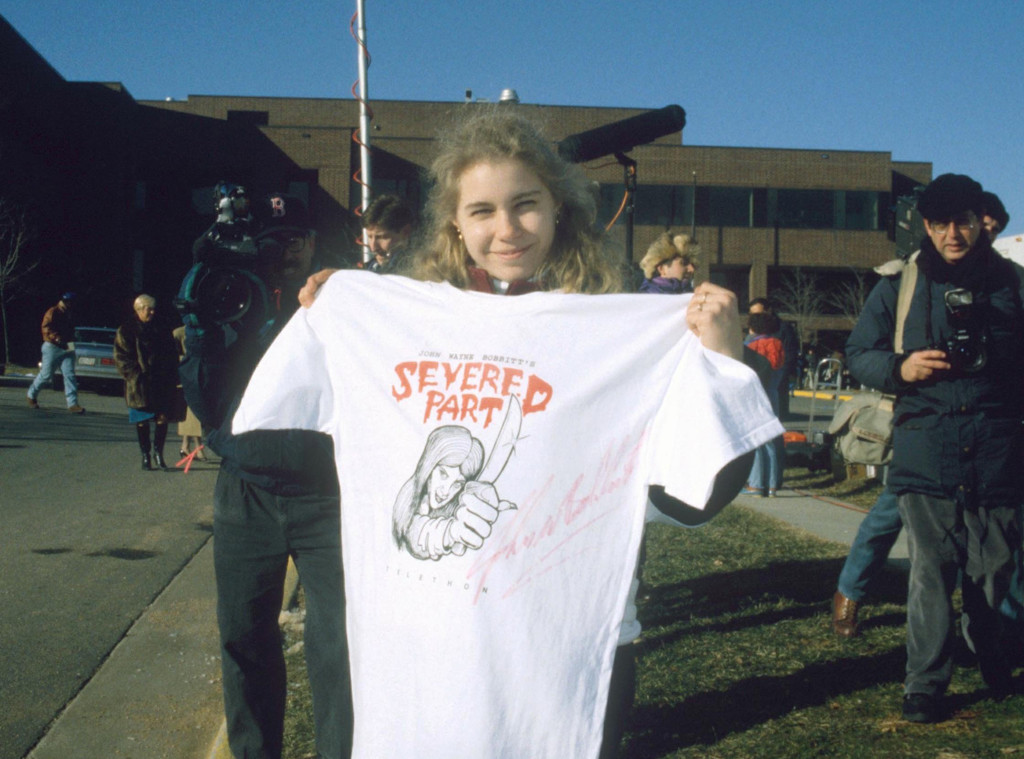
Peter Heimsath/REX/Shutterstock
On the legal side, Lorena, a manicurist from South America, successfully pleaded not guilty by reason of insanity and after being acquitted—with folks selling penis-shaped chocolates and “Love Hurts” T-shirts outside the courthouse—she was hospitalized for five weeks for psychiatric evaluation. In a separate trial, John, a former Marine, was acquitted of marital sexual assault.
“They always just focused on it,” Lorena told The New York Times recently. “And it’s like they all missed or didn’t care why I did what I did.”
It would be years before the significance of the actual series of events came close to being widely understood. And there was still plenty more to explain, as the new four-part docu-series Lorena, executive-produced by Jordan Peele, directed by Joshua Rofé and premiering Friday on Amazon Prime, sets out to do.
“With this project, Lorena has a platform to tell her truth as well as engage in a critical conversation about gender dynamics, abuse, and her demand for justice,” Peele said in a statement when the series was announced last spring. “This is Lorena’s story and we’re honored to help her tell it.”

Amazon
“Name dropping Get Out didn’t hurt,” Rofé told IndieWire when Lorena premiered at the Sundance Film Festival in January, talking about the always-tenuous process of getting people on-board for interviews.
“I felt that Joshua was an amazing person to tell the story, and the human demeanor that he had along with Jordan Peele,” Lorena told Variety last month. “To see men onboard and talk about this serious issue, to me, that was eye opening. I was like, ‘Wow, that could work.’ That meant a lot to me, that men are involved in women’s issues. And that was the key element for me to decide, because if we are going to evolve to reach gender equality, it is very important to involve men. My role in this documentary, was to tell the story as honestly and authentically that I could and to raise awareness about domestic violence and sexual assault.”
2018 marked 25 years since the events in question and ensuing trials—a round number that had people naturally wondering “where are they now?”—and it’s a fair assumption that right now was an ideal moment to revisit the case, its legal implications, the social reaction to it and how far, or not far in some respects, we’ve come with regard to listening to women and talking about sexual violence, masculine entitlement, spousal dynamics and domestic abuse.
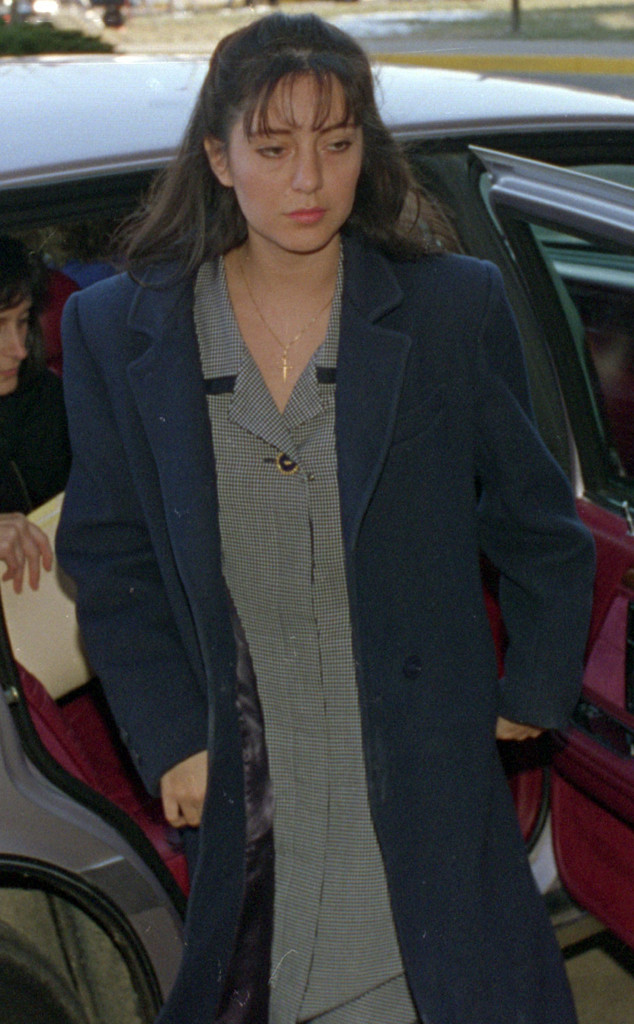
STEVE HELBER/AP/REX/Shutterstock
“Virginia has a tough standard for marital rape. It’s a much tougher standard than stranger rape. We need to look at it,” then-Lt. Gov. Donald S. Beyer Jr. told reporters after a grand jury returned an indictment of marital sexual assault, which carried a maximum 20-year prison sentence (instead of a potential life sentence that the rape charge carried), for John Bobbitt.
To be considered spousal rape, the couple had to be estranged at the time of the attack, and the victim would have to have suffered “serious permanent damage.”
“He jumped on top of me and he started grabbing my arms really tight,” Lorena told ABC News’ 20/20 in an interview in 1993. “I said, ‘I don’t want to have sex’… he forced me… my underwear was ripping off. I was just fighting… He wouldn’t listen.”
After the assault, she recalled, she went into the kitchen to get a glass of water, saw the knife and “everything went just fast.”
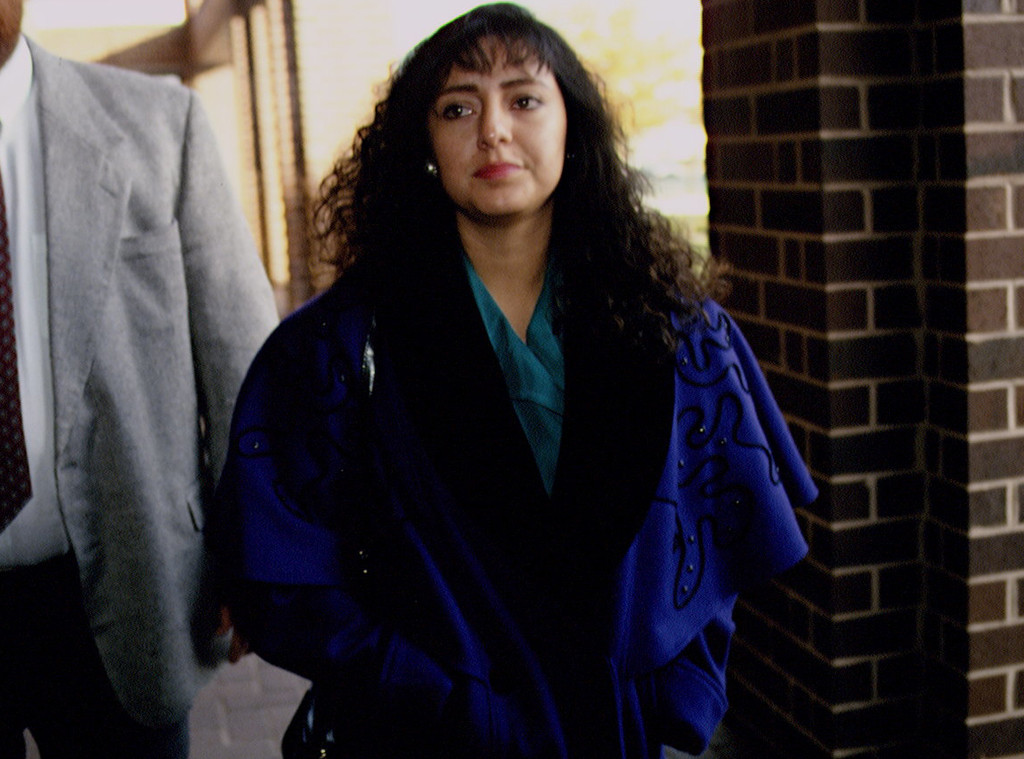
Jeffrey Markowitz/Sygma via Getty Images
John denied raping her—then or at any other time—and in the first of two back-to-back trials that November at the Manassas courthouse, both prosecuted by Prince William Commonwealth’s Attorney Paul B. Ebert, he was found not guilty of marital sexual assault. Sixteen days later, Lorena went on trial for malicious wounding, a felony charge that carried a maximum 20-year prison sentence, and the lesser charge of unlawful wounding. Plus, because she wasn’t a citizen, she faced the possibility of deportation.
John’s trial, because it was a sexual assault case, wasn’t televised. Lorena’s was, and coming pre-O.J. but after the circus that was the first Menendez brothers’ murder trial, the media were in top sensationalizing form.
It’s not as if the story isn’t murky and full of “oh, well if that‘s true…” moments. These cases were prime examples of he-said, she-said, except for the one part they agreed on, which is that they weren’t happy. And there is no such thing as a perfect victim.
It was said during the proceedings that John and Lorena Bobbitt had consensual sex 72 hours before the alleged rape.
“He always have orgasm and he doesn’t wait for me to have orgasm,” Lorena told a police lieutenant hours after the incident in a statement that prosecutors would point to as evidence she was thinking lucidly in the moment. “He’s selfish. I don’t think it’s fair, so I pulled back the sheets then and I did it.”
According to a friend of John’s who was staying with the couple that night, sleeping on the sofa, Lorena stole $100 from him before taking off, still holding the knife and the penis.
Psychologists and psychiatrists called by both sides at trial had expected differing opinions as to whether she was legally insane in that moment, but all agreed in not doubting that she had suffered abuse in her marriage.
“They are like children,” Ebert, who had expressed no doubts about trying both cases, said in his closing argument at Lorena’s trial. “Neither one plays with a whole deck. They don’t have all their spigots open.”
Lorena Gallo met John Bobbitt at a Marine Corps officers ball in 1988. Talking to ABC News’ 20/20 in 2018, he recalled seeing her across the room, “and she looks shy and innocent, and I went over there and asked her to dance. She can barely speak English… I go, ‘Here’s my number.'”
Lorena was born in Ecuador, grew up in Venezuela and was in the United States on a student visa, attending Northern Virginia Community College.
“I thought John was very handsome,” Lorena told Vanity Fair in 2018. “Blue eyes. A man in a uniform, you know? He was almost like a symbol—a Marine, fighting for the country. I believed in this beautiful country. I was swept off my feet. I wanted my American Dream.”
John claimed he was pressured by Lorena’s mother to marry her, because her visa was about to expire. “Had to bite the bullet, I guess, get married,” he said. Asked if he loved her, John replied, “Well, I thought I did.” They married on June 18, 1989.
“She said she loved him and she wanted her marriage to work,” Janna Bisutti, who employed Lorena as a nanny and then as a manicurist at her salon in Manassas, told ABC News in 1993. “She was going to do anything to try to make her marriage work.”
When he was 3, John and his two brothers went to live with an aunt and uncle, who had four boys of their own, in upstate New York, after their mother decided she was unable to care for them. It was a loving, church-on-Sundays household, John told ABC. There were also a lot of fights, he added, and he generally played peacemaker.
Lorena alleged that John hit her for the first time about a month after they got married and that started a pattern of abuse.
John, meanwhile, alleged that Lorena was the one who was jealous, had a temper and would hit him, and his physical response was only to “subdue her or restrain her.”
But as seen at trial (and in countless tabloids and on TV), there were photos of injuries to Lorena that she said were inflicted by her husband. Defense witnesses testified that John had bragged about forcing his wife to have sex, that she had called 911 on him, and that they had seen bruises which Lorena said John had given her.
“I mean if we get in a fight and you jump on me and start hitting me, and I try to subdue you, you’re going to end up getting some type of injury, like a bruise or fat lip,” he said on 20/20.
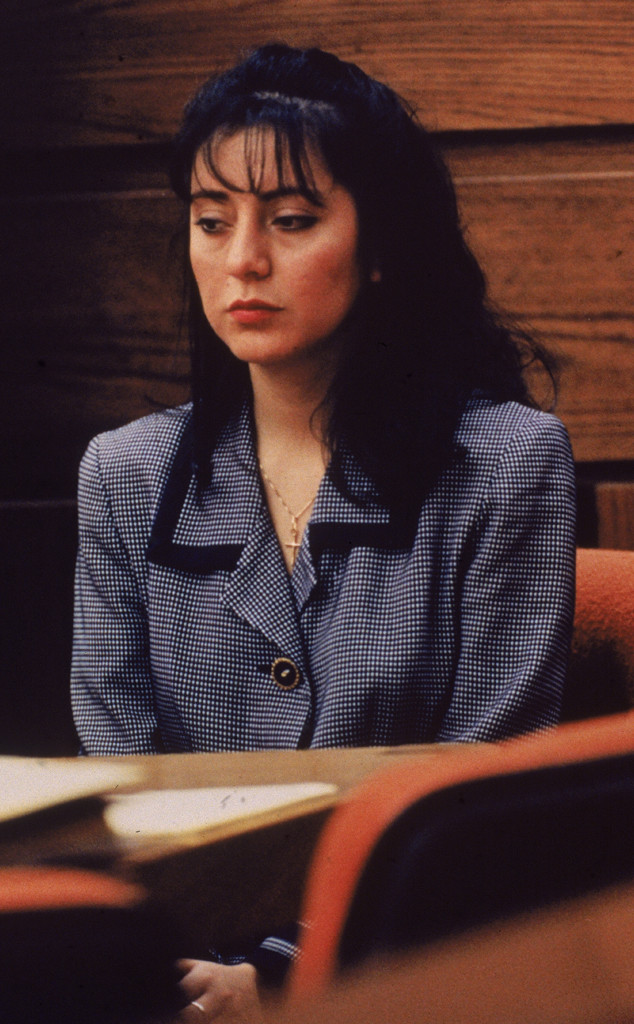
Consolidated News/Getty Images
Both of them called police on each other—resulting one time in John being arrested and charged with assault and battery. He in turn filed a report accusing Lorena of assault and battery. Neither case went forward.
After being discharged from the Marines in 1991, he had trouble finding steady work, so Lorena became the main breadwinner. John says she wasn’t satisfied living within their means, so they moved to a bigger apartment and had two new cars.
Lorena was caught shoplifting from Nordstrom once and sentenced to community service. Janna Bisutti said that her employee also stole $7,000 from her; she just demanded Lorena pay her back.
The Bobbitts briefly broke up, then reconciled.
Lorena has explained that, as a Catholic, she didn’t believe in divorce and that’s why she didn’t leave John. She had an abortion, however, after finding out she was pregnant, saying later that she wanted to have the baby but John told her he didn’t think she could handle a child. She was too afraid to keep it, she said.
At one point she went to police to file for a restraining order, but left before the paperwork was processed. John later said that he had already told her he wanted a divorce by then.
Asking for a divorce “hurt her,” John recalled on 20/20.
“It hit her like a ton of bricks. She was crying and she was begging. She said she didn’t believe in divorce, but I said, ‘It’s pointless. I mean what’s the point of staying married? You’re not happy. I’m not happy.'”
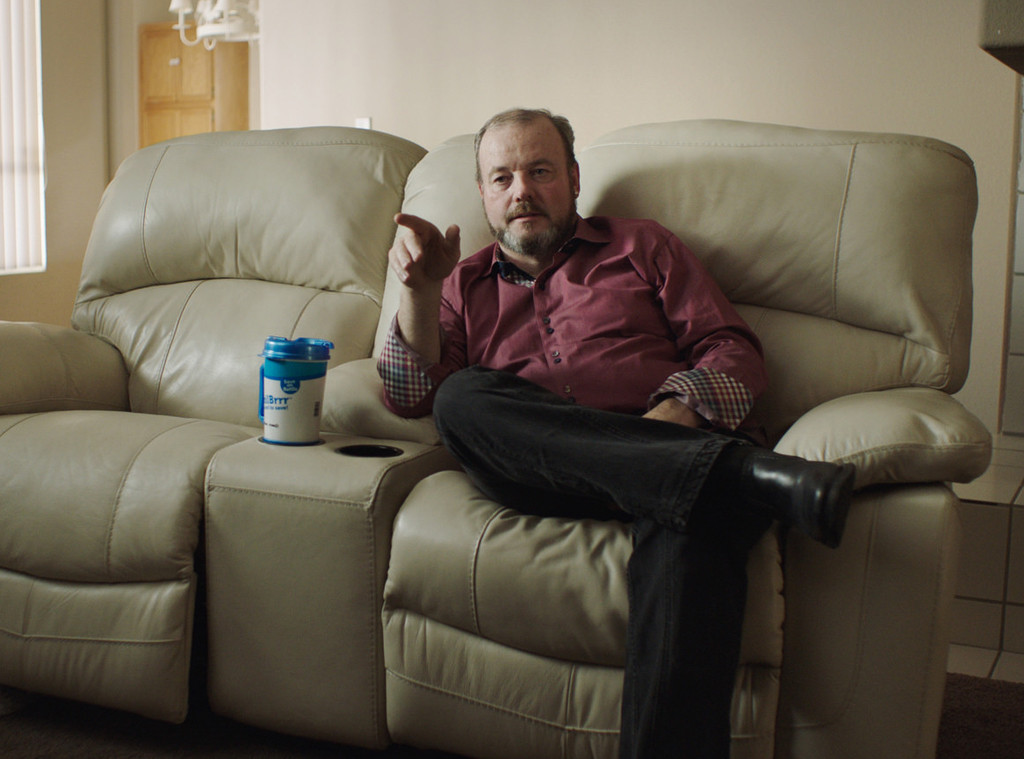
Courtesy of Sundance Institute
“And there was the green card, too,” John also told Vanity Fair. “That didn’t come to my mind at the time, but it’s obvious. You have to be married to an American citizen for five years to get one, and we’d only been married for four.”
On the night of June 22, 1993, he went out drinking with a friend who was in town from Buffalo, N.Y. Both men returned to the apartment in the early morning hours of June 23. John says he got into bed to go to sleep and Lorena made sexual advances. He says they fooled around but he was too out of it and there was “no sex.”
“Never raped anybody in my life,” John reiterated last year. “Everything was done in my sleep. The sexual advances, the talking… all in a deep sleep.”
Then, “I sprung up and I was bleeding, I was applying pressure, then immediately I thought it was something out of a horror movie,” John said. “A nightmare… turned into reality.” He thought he was going to die, he said.
Robert Johnston, the friend who was staying with them, drove John to Prince William Hospital about 10 minutes away.
In the meantime, going by Lorena’s directions, a police officer had found the detached penis in the field where she tossed it, packed it on ice in a Big Bite hot dog box procured from a 7-Eleven across the street and drove it to the hospital.
Urologist Dr. James Sehn, a veteran of numerous microsurgeries but no penile replantations, performed the emergency procedure, which involved reconnecting various arteries, veins and nerves to restore blood flow, with plastic surgeon Dr. David Berman. It took nine hours.
“It remains the most interesting and dramatic case I’ve ever done in my life,” Berman told 20/20. “It kind of really blew a lot of people’s imaginations away with what could be done.”
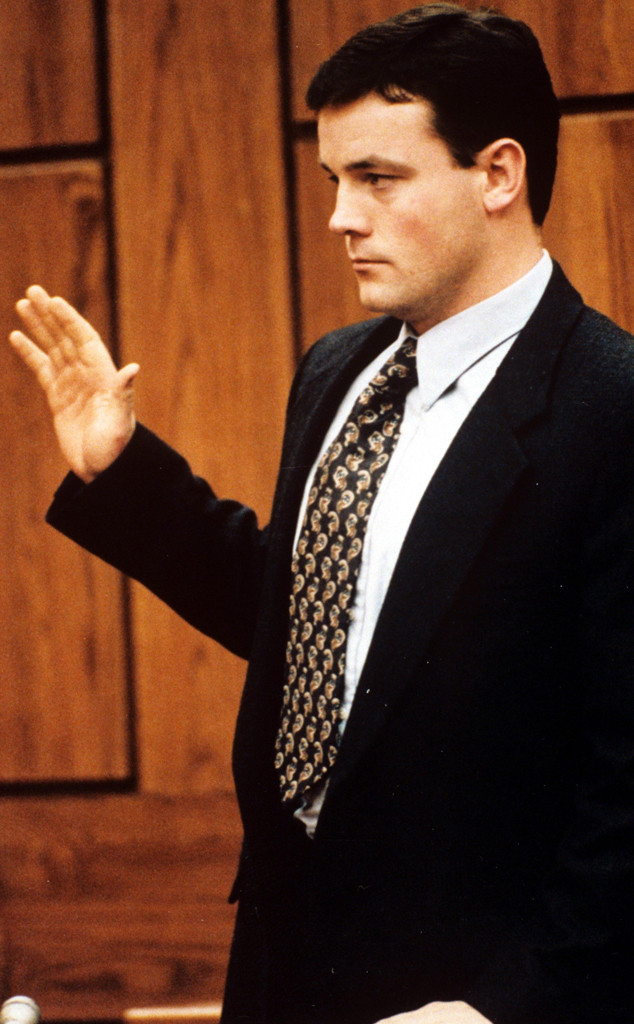
Peter Heimsath/REX/Shutterstock
In hindsight, John admitted to being “a little cocky” on the witness stand when testifying at Lorena’s trial. “I didn’t know how to explain the story.”
“John Bobbitt is what he is and he testified, I’m sure, to the best of his ability,” Paul Ebert, the prosecutor, said in January 1994 after the verdict was announced.
John, who was not in the courtroom when the verdict was read but watched on TV, recalled to ABC News that “everybody was shocked” that Lorena had been found not guilty, thinking “how can somebody get away with it?”
But while he painted Lorena as a greedy, materialistic woman who did what she did because she was angry and afraid he was going to leave her, John wasn’t the most sympathetic victim—except to those who couldn’t get past feeling bad for a man because he had suffered a grotesque penile injury (while simultaneously making rampant fun of him).
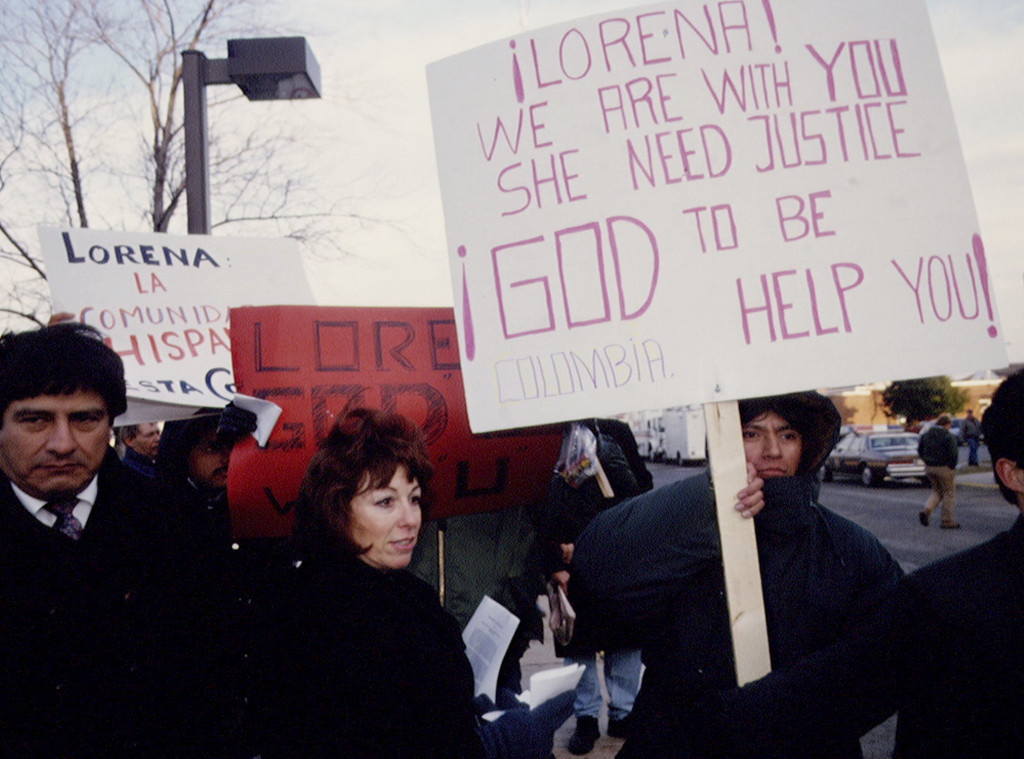
Jeffrey Markowitz/Sygma via Getty Images
And “everybody” didn’t think that Lorena had gotten away with a crime. In fact, plenty of people thought John was the one who got away with the crime.
Which isn’t to say that it was OK to turn “Bobbitt” into a verb or the forever-term for removing a penis from its person. It was a sickening situation all around. While some wrote Lorena off as a crazy scorned wife, most felt great sympathy for her—but also didn’t think what she did was right. Still others considered her a feminist hero—not necessarily for her actions (though some supporters proudly flashed V-for-victory signs then made snipping motions) but for telling her story and not being cowed by people dragging her through the mud or legal eagles who recommended she take a plea.
“Lorena Bobbitt was part of a group of women—everyone from Hillary Clinton and Monica Lewinsky to Tonya Harding—who were shamed in the 1990s, women who were what I call ‘bitchified’—undermined, objectified, and thwarted by a sexist media narrative,” Allison Yarrow, author of 90s Bitch: Media, Culture and the Failed Promise of Gender Equality, told NBC News last year. “The abuse of Lorena Bobbitt was ignored in favor of a narrative that celebrated male sexuality and shamed her for being a vengeful perpetrator, instead of shining a light on domestic violence and abuse.”
But though his name was a punchline, it was also world-famous, and John decided to capitalize on it. (He simply had bills to pay, his lawyers explained.)
“John is starting his life again,” Paul Erickson, one of his attorneys, told the Washington Post after his acquittal. “He has to pick a place to live and has to decide what kind of job he wants.”
He became a Howard Stern Show regular (back when Stern was on regular radio, so by the end of 1993 the FCC was all over the shock jock). He booked a 40-city media tour. He starred in two comedic porn movies directed by XXX-star Ron Jeremy, John Wayne Bobbitt: Uncut and—after Stern offered to pay for John to undergo male-enhancement surgery—1996’s Frankenpenis. For awhile he played in a band called The Severed Parts.
Though Lorena acquired an agent to handle any biopic offers at the time (she thought recent Oscar winner Marisa Tomei would do a nice job), most of the flamboyantly visible continuation of their saga came from John’s corner. Comedians continued to enjoy their rim shots. For years, what prompted Lorena to cut off her husband’s penis in the first place remained the B-side of the splashy single.
In the fall of 1994, John was sentenced to 60 days in jail for misdemeanor domestic battery against his girlfriend at the time, Kristina Elliott. In 1999 he pleaded guilty to attempted grand larceny for stealing $140,000 worth of clothes from a Nevada store and was sentenced to five years’ probation. Months later he was convicted of harassing an ex-girlfriend, adult-film actress Desiree A. Luz.
John was married again for 13 days before the union was annulled. In 2002 he was going to appear on Celebrity Boxing 2, the pitting of D-listers against each other being all the rage, but ended up getting arrested for allegedly battering his third wife, Joanna Ferrell. He was ordered to attend domestic violence classes. In 2004, he was found not guilty of assaulting Ferrell and her teenage son but the judge ordered him to finish his court-ordered counseling.
“I’ve never been so happy with the judicial system,” John told the Las Vegas Sun.
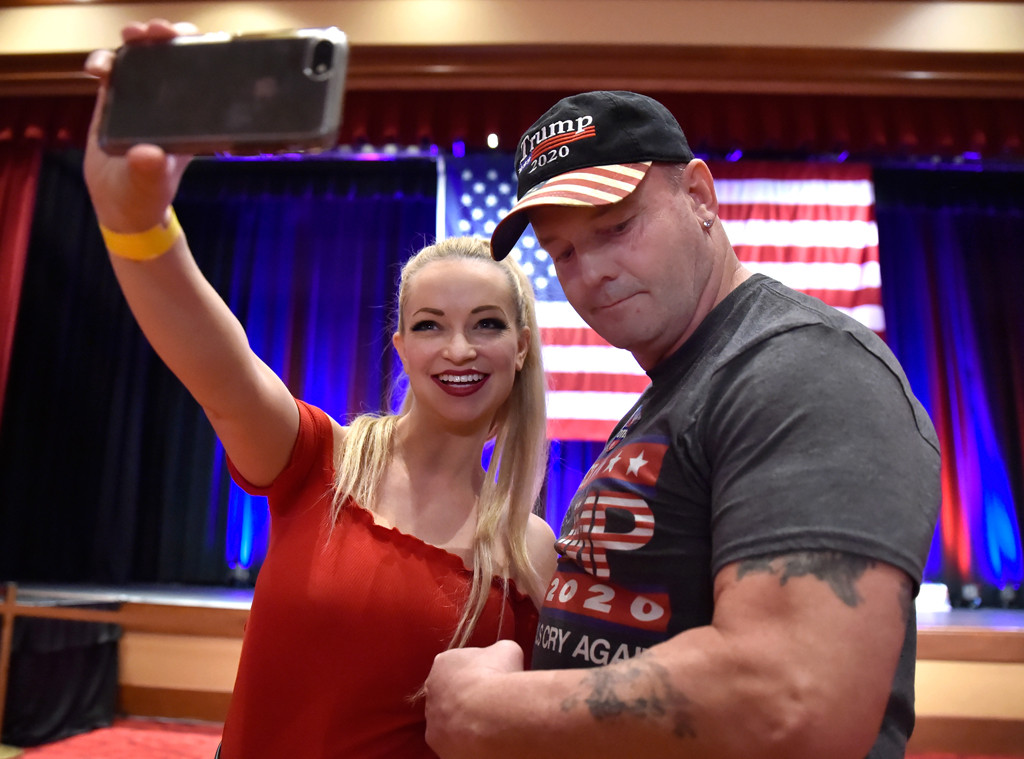
David Becker/Getty images
According to Vanity Fair, at one point he left Nevada to go help care for his sick mother in New York. In 2014, John’s neck was broken in a car accident in Buffalo, N.Y., when another car ran a red light and slammed into him. In 2016, VF reports, he went back to Dr. Berman, the plastic surgeon who helped reattach his penis, to get his member un-enhanced. As of 2018, he had received a settlement from the accident and was living in Vegas again, busy searching for the so-called Fenn Treasure, a chest of loot rumored to have been buried in the Rocky Mountains somewhere by art collector Forrest Fenn.
“I didn’t batter Lorena,” John told VF. “And those women after Lorena—the ones who were using me, my name, as a stepping-stone—I didn’t batter them, either. I’m a Marine. I’m trained to protect people, not hurt them.”
When John was acquitted of marital sexual assault by a jury with nine women on it, legal and armchair experts thought that boded poorly for Lorena, who testified at her husband’s trial.
“If she was my client, I would be begging for a misdemeanor,” an American University law professor told the Washington Post. “I would not be very happy about the prospect of putting her before a jury.”
But Lorena’s team stayed the course, her lawyer James Lowe telling the Post, “Based on media reports, the [first] jury was concerned with a lack of corroboration. As to the issue of long-term, egregious spousal abuse, there will be so much corroboration, you’ll be bored to tears hearing it.”
There were tears, and there was enough corroboration to convince the jury of seven women and five men at Lorena’s trial that she was rendered temporarily insane. They deliberated for just over six hours, finding it plausible that she had snapped when one more instance, after years of alleged abuse, prompted, as the defense put it, an “irresistible impulse” to retaliate.
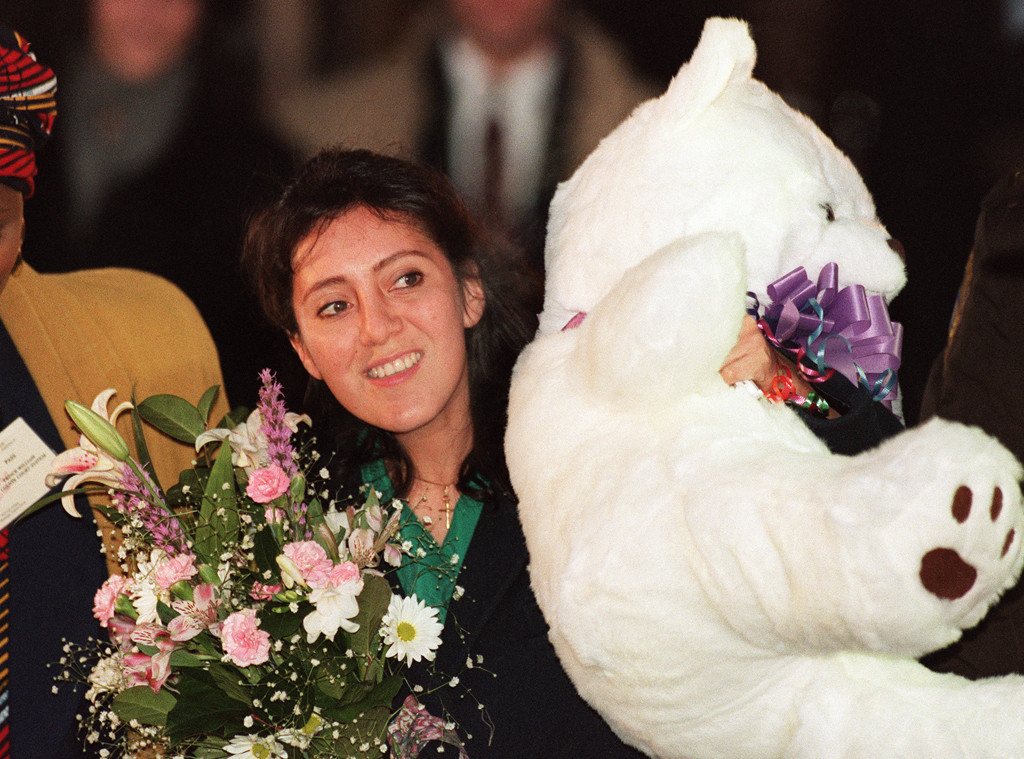
J. DAVID AKE/AFP/Getty Images
“She did once and will again seek her American dream when she is able, and if the publicity of her abuse can help one person find freedom, then all of this is not in vain,” Janna Bisutti read in a statement on Lorena’s behalf after court that day. The statement was also released in Spanish.
“We’re glad the jury rejected the twisted argument that a battered woman should be locked up in a prison cell,” Kim Gandy, executive VP of the National Organization for Women at the time (then president from 2001 until 2009), said in response, per the New York Times. She added, “this whole saga drives home the need for swift passage of a comprehensive version of the Violence Against Women Act, which is stalled in the never-neverland of Congressional maneuvering.”
President Bill Clinton signed the act into law on Sept. 13, 1994. Congress reauthorized it in 2000, 2005 and in 2013. It was allowed to expire in 2018, but its reauthorization was part of the short-term spending bill that ended the recent government shutdown on Jan. 25.
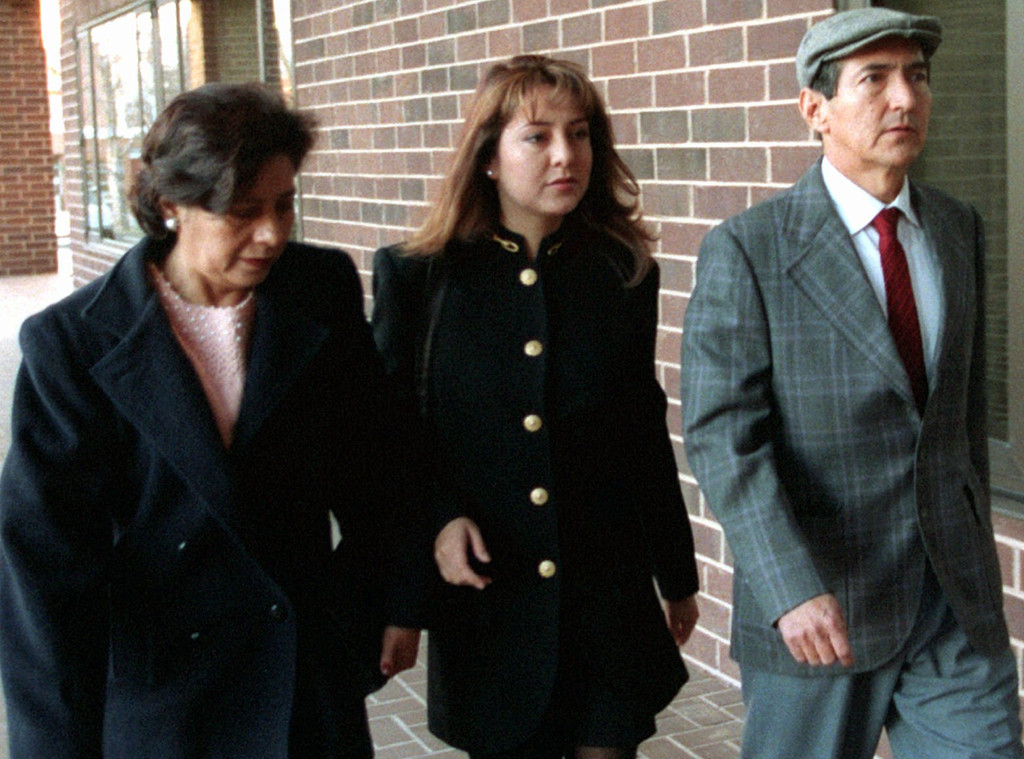
WILLIAM PHILPOTT/AP/REX/Shutterstock
“I never meant to hurt anybody,” Lorena told ABC News in 1994 upon her release from the psychiatric hospital. “I never hurt anybody before. It just happened.”
While John hit the road, eventually landing in Las Vegas where he still lives, Lorena went back to work at Bisutti’s salon in Manassas. She became a U.S. citizen in the summer of 1994 and then her parents, brother and sister came to the U.S. and she supported them, as a manicurist and administrative assistant, while they embarked on the path to citizenship too.
The Bobbitts officially divorced in 1995.
Lorena did speaking engagements but turned down more lucrative offers such as the chance to pose for Playboy for $1 million. In 1997, she was briefly back in the news when she was arrested for allegedly striking her mother, but was found not guilty after Elvia Gallo said “a pimple, a big one,” had caused what looked like an injury to her face.
Lorena went back to college and met her longtime partner, David Bellinger. They had a daughter, Olivia, in 2005. She became an advocate for victims of domestic violence and started the Lorena’s Red Wagon foundation in 2007 to help prevent domestic abuse and aid survivors.
And now, Lorena’s story is the subject of—not a Letterman Top 10 list—but an Amazon docu-series.
“Basically I just had to say, ‘Look, I owe this to myself. I owe this to my child. I owe this to women who are victims of domestic violence,'” she told Variety.

ABC/Lorenzo Bevilaqua
Looking at what transpired after June 23, 1993, “I was very saddened in the way how the media was treating the whole situation. They used me as a joke and it was very sad. It was very hurtful to me that people actually take a look at and not see the reality of what happened here. I did not know how to handle it at that time. Instead of having a serious conversation about domestic violence and sexual assault, it was about John’s organ. The whole essence of the whole situation is indignant.”
Asked if she thought Howard Stern—whose stripes have changed over the years but was too big of an advocate for John Bobbitt to not merit a presence in Lorena—owed her an apology, Lorena said, “The way how I look at it, if I was waiting for everyone to give me an apology, then that would have prevented me from moving on with my life. And I am not going to sit around for everyone to give me an apology. I think that Howard and many others missed tremendous opportunities to talk about these serious social issues.”
Almost three decades later, those issues are at least being examined in a new way.
Lorena, she told the New York Times, “is about a victim and a survivor and this is about what’s happening in our world today.” And while she’s been to Sundance and is almost certainly going to be trending on Twitter this weekend, nowhere is she more of a celebrity than in Manassas, Va.
“I know I am still Lorena Bobbitt,” she said. “That name you know, it’s very important here.”

